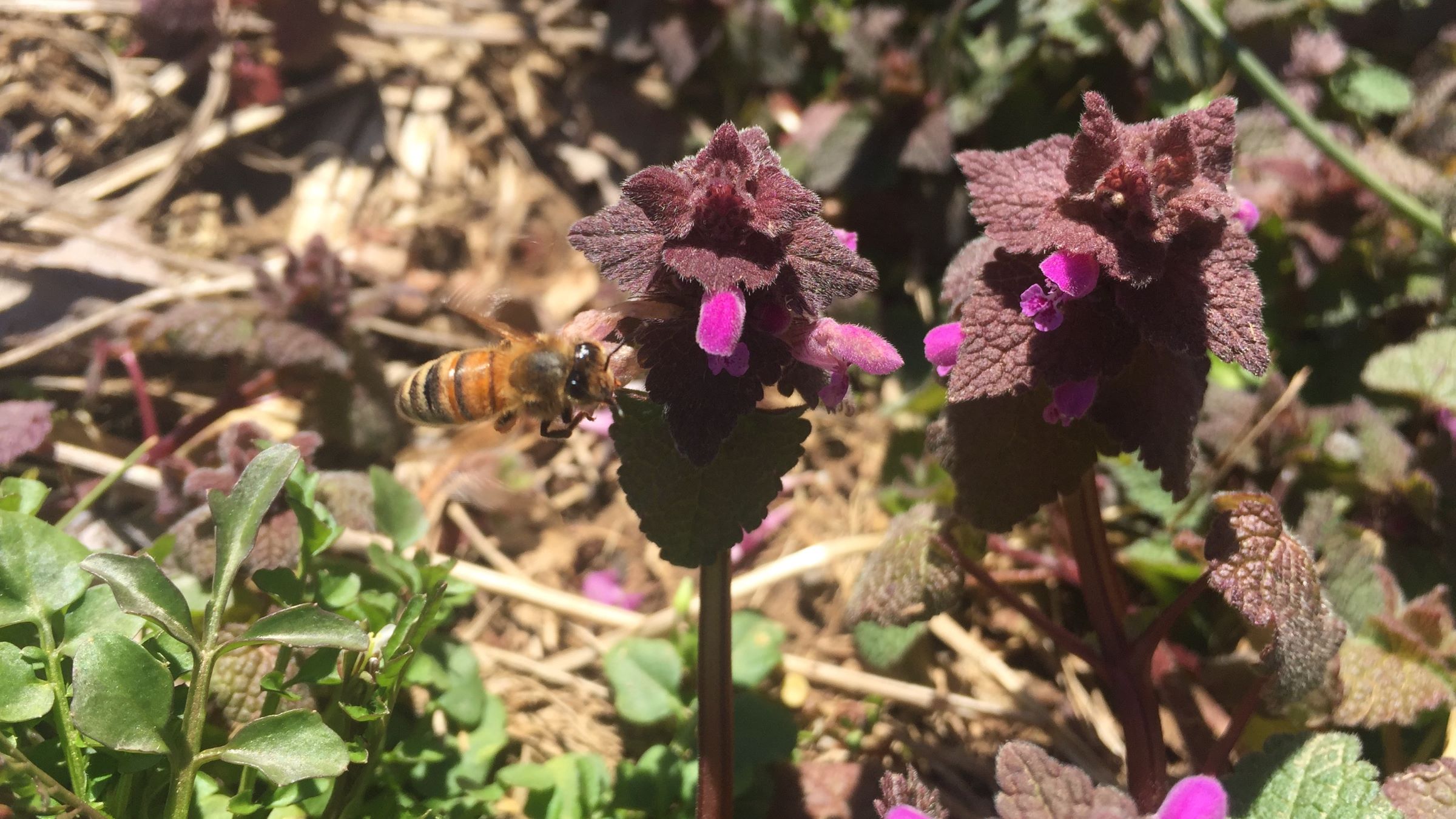Unveiling the secret garden: University of Kentucky researcher finds winter annuals can save honey bees
Unveiling the secret garden: University of Kentucky researcher finds winter annuals can save honey bees


Honey bees, vital pollinators in our ecosystem, are currently facing a significant decline. This drop is causing concern for beekeepers and the agriculture sector. Under the guidance of University of Kentucky Martin-Gatton College of Agriculture, Food and Environment Department of Entomology researcher Clare Rittschof, a team of scientists embarked on a study in understanding and potentially mitigate this issue.
Their research, published in Agriculture, Ecosystems and Environment, focused on a critical time for honey bees — the late-winter and early-spring periods, when honey bee colonies come out of their winter dormancy, and need for adequate nutrition is peaking.
The hypothesis centered on winter annuals, plants often disregarded as mere weeds in fallow crop fields. The team postulated these could be an untapped resource, providing essential nutrition to honey bees during this vulnerable period. To test this hypothesis, the researchers established honeybee colonies near various fields, some abundant with winter annuals and others devoid.
“Winter annuals, commonly dismissed as weeds, are actually a treasure trove of nutrition for honey bees during the critical late-winter and early-spring period,” Rittschof said. “This time is vital for the health and growth of bee colonies."
The methodology involved close measures of colony growth, health and productivity. Rittschof scrutinized key factors such as colony size, honey quantity and immune-system strength. In parallel, the team conducted an in-depth field analysis of the winter annuals. They aimed to quantify the plant abundance in predicting colony growth.
Rittschof said the results were both revealing and encouraging.
The honeybee colonies, positioned near fields rich in winter annuals, displayed more robust growth and stronger immune responses than those near fields lacking these plants. This finding was a significant indicator of winter annuals’ positive impact on honeybee colonies.
“Winter annuals presence in fallow croplands significantly boosted honeybee colonies' growth and immune response,” Rittschof said. “It’s a clear indication that what we consider weeds can actually be beneficial for these crucial pollinators."
Rittschof elucidated that an interesting facet was the variation in benefits across different types of croplands.
“Fallow croplands, particularly those previously used for cultivating crops like corn and soybeans, were identified as the most beneficial for the bees,” she said. “These fields typically exhibited a higher density of winter annuals, providing a richer and more diverse food source for the honeybee colonies.”
The implications extend into the broader spectrum of agricultural practices. Farmers can play a pivotal role in supporting honeybee populations by allowing winter annuals to grow in their fallow fields during winter. This practice supports the conservation of bees, contributing positively to soil health and erosion control.
Moreover, the research highlights the potential for adjusting agricultural practices to be more bee-friendly. For instance, cropland weed-control timing measures could be optimized to benefit honeybee populations. Such adjustments could represent a step towards more sustainable and environmentally conscious farming practices.
While offering valuable insights, the study also opens avenues for further research.
"There’s still much to explore,” Rittschof said. “We need to delve deeper into which winter annuals are most beneficial for bees and how we can incorporate the growth of these plants into modern farming practices without affecting crop yield. It's an exciting and crucial field of study that has the potential in reshaping our agricultural landscape."
This material is based upon work that is supported by the National Institute of Food and Agriculture, U.S. Department of Agriculture, under award number 2017-0817-1406. Any opinions, findings, conclusions or recommendations expressed in this publication are those of the author(s) and do not necessarily reflect the view of the Department of Agriculture.
– 30 –
The Martin-Gatton College of Agriculture, Food and Environment is an Equal Opportunity Organization with respect to education and employment and authorization to provide research, education information and other services only to individuals and institutions that function without regard to economic or social status and will not discriminate on the basis of race, color, ethnic origin, national origin, creed, religion, political belief, sex, sexual orientation, gender identity, gender expression, pregnancy, marital status, genetic information, age, veteran status, physical or mental disability or reprisal or retaliation for prior civil rights activity.
Entomology Research

